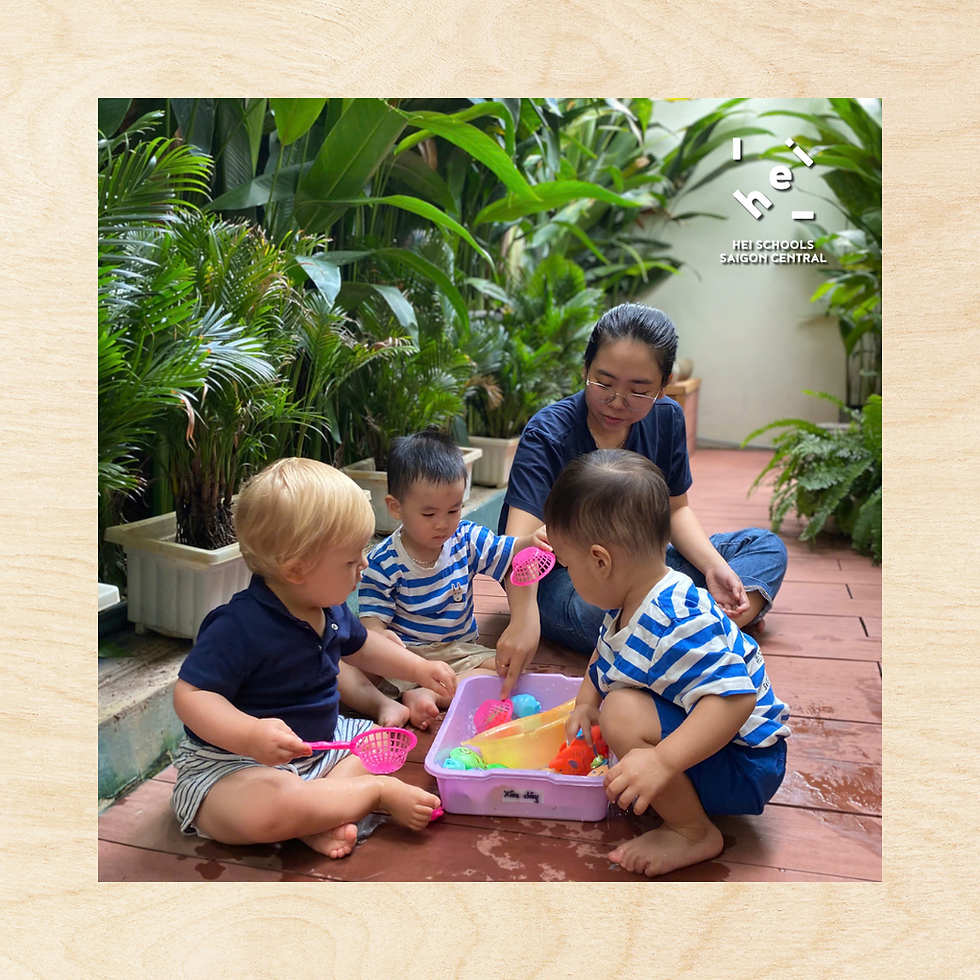The Art of Asking: How Our Everyday Questions Shape Our Children’s Growth
- Sep 2, 2025
- 4 min read
Have you ever wondered how the simple questions we ask our children after school can shape their thinking, confidence, and love for learning? At HEI Schools, we believe that every conversation at home is a doorway—a chance for children to discover themselves, and for us as parents to understand their world truly.
Questions That Open Hearts—or Close Doors?

It's only natural: when our children walk through the door after school, we want to know everything. Out of love and concern, we often ask, "What is the English word for 'apple'?" or "Did you have fun at school today?" or "Did you eat all your lunch?"
But while these questions show we care, research tells us they might not always create the safe space our children need to open up truly.
Studies from leading education experts—like Professor Paul Harris at Harvard and research teams at University College London—remind us that when children are faced with “test-like” or closed questions (questions looking for a right or wrong answer), they tend to give short, safe replies, or tell us what they think we want to hear. Over time, these conversations can become routines where children keep their true feelings and experiences to themselves, simply because they sense our main goal is to “check” on their performance or safety.
But what if our questions could do more than check—they could connect?
2. The Gentle Power of Open-Ended Questions
Something wonderful happens when we shift from “testing” to “curiosity”—when our questions show that we’re truly interested in our child’s feelings, thoughts, and daily adventures. Open-ended questions invite children to share their unique stories, reflect on their feelings, and know that what matters most to them matters to us too.
Imagine the difference:

Instead of “What is the English word for ‘apple’?”, you might ask, “What was the most interesting thing you did in English class today?”
Instead of “Did anyone misbehave in class?”, “Who made you smile or surprised you today?”
Instead of “Did the teacher scold you?”, “Was there a moment today when you felt especially proud or brave?”
International studies, including those from the UK and Finland, show that children whose parents use open-ended, caring questions become more confident, develop better problem-solving and social skills, and feel closer to their families. In fact, these children show up to 30% stronger communication and critical thinking abilities (UCL, 2022). Most importantly, their sense of belonging and trust grows—because they know their parents care about who they are, not just what they can do.
At HEI Schools in Finland, it’s common for teachers and parents to create an environment where children’s voices are heard, where questions are invitations to dialogue, and even children can ask questions back. This openness nurtures independence, curiosity, and emotional security—qualities we all hope for in our own children.
3. Language Learning: Beyond Translation, Toward Real Connection

It’s understandable—when our children learn English, we often want proof of progress. But leading language researchers like Stephen Krashen and the British Council remind us that young children learn languages not through translation or word drills, but through immersion and joyful, everyday experience.
If we focus on asking our children to “translate” individual words (“What is the English word for ‘apple’?”), we may unintentionally make them anxious about mistakes, or reduce English to just memorizing vocabulary. In reality, children absorb language best when they are surrounded by it—through stories, songs, play, and conversation—much as they first learned their mother tongue.
When a child hears, “This is an apple. It’s red and juicy. Would you like a bite?” they are not just learning the word “apple.” They are connecting language with images, feelings, actions, and real life. This way, language is not a test, but a living bridge to understanding the world.
As parents, we can nurture this by:
Asking about their favorite stories or games in English class,
Encouraging them to teach us a new word or phrase,
Listening to their songs or watching them act out what they’ve learned.
Through these gentle, meaningful moments, children build not only their vocabulary but also confidence, curiosity, and a lasting love of language.
4. Every Conversation Is a Chance to Grow Together
What truly matters in our daily conversations isn’t how much we “test,” but how deeply we listen. Each open, caring question is a seed planted in our relationship with our child—a sign that their thoughts, feelings, and dreams matter. In return, our children feel safe to share their stories, knowing that we will listen with patience, respect, and love.

In Finland, this spirit of dialogue is at the heart of education and family life. Parents and teachers build trust by asking—not to control or judge—but to understand, encourage, and grow together.
And every family can bring this spirit home. When we greet our child after school with curiosity and warmth, we invite them to share not just what they did, but who they are becoming.
5. A Gentle Invitation
At HEI Schools, we believe every parent has the power to shape their child’s journey not by knowing all the answers, but by asking the right questions. Let’s make space each day for one open, heartfelt conversation. Let’s listen for the story behind the answer. Let’s celebrate the small moments of connection that make our children feel seen, heard, and loved.
Together, we can help every child grow into their brightest, happiest, most confident self—one gentle question, one loving conversation at a time.
References:
Krashen, S. (1990). Language acquisition and language education. John Benjamins Publishing Company
British Council. (2020). Young learners and language learning: A research overview.
O’Grady, W. (2022). How children learn language. Cambridge University Press.
.png)
Comments